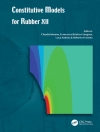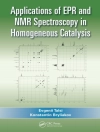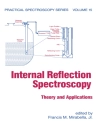Written and edited by experts in the field, this book brings together the current state of the art in phenotypic and rational, target-based approaches to drug discovery against pathogenic protozoa. The chapters focus particularly on virtual compounds and high throughput screening, natural products, computer-assisted drug design, structure-based drug design, mechanism of action identification, and pathway modelling. Furthermore, state-of the art ‘omics’ technologies are described and currently studied enzymatic drug targets are discussed. Mathematical, systems biology-based approaches are introduced as new methodologies for dissecting complex aspects of pathogen survival mechanisms and for target identification. In addition, recently developed anti-parasitic agents targeting particular pathways, which serve as lead compounds for further drug development, are presented.
Mục lục
List of Contributors IX
Foreword XIX
Preface XXIII
Part One Identification and Validation of New Drugs and Targets 1
1 Discovery of the Mechanism of Action of Novel Compounds That Target Unicellular Eukaryotic Parasites 3
Daniela Begolo∗ and Christine Clayton
2 Antiparasitics from Algae 41
Stefan Ringgeler and Barbara Kappes∗
3 Contribution of Natural Products to Drug Discovery in Tropical Diseases 75
Frederick Annang, Olga Genilloud∗, and Francisca Vicente
4 Isoxazolines: A Novel Chemotype Highly Effective on Ectoparasites 105
Tina Weber and Paul M. Selzer∗
5 Trypanosomal Cysteine Peptidases: Target Validation and Drug Design Strategies 121
Elany Barbosa da Silva, Glaécia Aparecida do Nascimento Pereira, and Rafaela Salgado Ferreira∗
6 Potential of Pyrimidine Metabolism for Antitrypanosomal Drug Discovery 147
María Valente, Antonio E. Vidal, and Dolores González Pacanowska∗
7 Phosphatidylcholine and Phosphatidylethanolamine Biosynthesis Pathways in Plasmodium 171
Ewelina Guca, Alicia Contet, Henri J. Vial, Kai Wengelnik, and Rachel Cerdan∗
8 Immunophilins as Possible Drug Targets in Apicomplexan Parasites 193
Alessandra Bianchin∗, Anthony J. Chubb, and Angus Bell
9 Targeting the Atg8 Conjugation Pathway for Novel Anti-Apicomplexan Drug Discovery 213
Alexia S. Miller and Jürgen Bosch∗
10 Turnover of Glycosomes in Trypanosomes – Perspectives for Drug Discovery 231
Ana Brennand, Eva Rico, Melisa Gualdrón-López, and Paul A.M. Michels∗
11 Glideosome of Apicomplexans as a Drug Target 255
Lauren E. Boucher and Jürgen Bosch∗
12 N-Myristoyltransferase as a Target for Drug Discovery in Malaria 275
James A. Brannigan and Anthony J. Wilkinson∗
Part Two Metabolomics in Drug and Target Discovery 295
13 Methods to Investigate Metabolic Systems in Trypanosoma 297
Maria Fatarova, Florian Bellvert, Edern Cahoreau, Frédéric Bringaud, and Jean-Charles Portais∗
14 The Role of Metabolomics in Antiparasitic Drug Discovery 321
Carlo R. Giannangelo, Katherine M. Ellis, Anna E. Sexton, Daniel Stoessel, and Darren J. Creek∗
15 The Importance of Targeting Lipid Metabolism in Parasites for Drug Discovery 343
Simon A. Young, Matthew D. Roberts, and Terry K. Smith∗
16 Carbon Metabolism of Plasmodium falciparum 371
Marco Biddau and Sylke Müller∗
Part Three Gene Expression and Its Regulation – A Promising Research Area for Drug Discovery 399
17 Epigenetic Gene Regulation: Key to Development and Survival of Malaria Parasites 401
Sabine Anne-Kristin Fraschka and Richárd Bártfai∗
18 Mechanisms Regulating Transcription in Plasmodium falciparum as Targets for Novel Antimalarial Drugs 421
Evelien M. Bunnik and Karine G. Le Roch∗
19 Aminoacyl t-RNA Synthetases as Antimalarial Drug Targets 441
Anmol Chandele∗ and Amit Sharma
Part Four Mathematical Approaches to Drug and Target Discovery 455
20 Mathematical Modeling and Omic Data Integration to Understand Dynamic Adaptation of Apicomplexan Parasites and Identify Pharmaceutical Targets 457
Partho Sen, Henri J. Vial, and Ovidiu Radulescu∗
21 Understanding Protozoan Parasite Metabolism and Identifying Drug Targets through Constraint-Based Modeling 487
Francis Isidore Totanes, Sanu Shameer, David R.Westhead, Fabien Jourdan, and Glenn A. Mc Conkey∗
22 Attacking Blood-Borne Parasites with Mathematics 513
David D. van Niekerk, Gerald Penkler, François du Toit, Jacky L. Snoep, Barbara M. Bakker, and Jurgen R. Haanstra∗
Index 543
Giới thiệu về tác giả
Volume Editors:
Prof. Sylke Muller received her Ph D in 1991 from the University of Hamburg. In 1992 she worked at the London School of Hygiene and Tropical Medicine, before returning to the Bernhard Nocht Institute for Tropical Medicine in Hamburg in 1994. In 1999 she was awarded the Habilitation and the venia legendi. From 2001 to 2012 she was funded by a Wellcome Trust Senior Fellowship at Dundee University (until 2004) and the University of Glasgow (2004 to 2012). In 2006 she was awarded a Personal Chair in Molecular and Biochemical Parasitology at the University of Glasgow.
Prof. Rachel Cerdan received her Ph D from the University of Paris XI in 1997. She spent three years at the Laboratory of Molecular Biology (Medical Research Council) in Cambridge, UK as a Marie Curie post-doctoral fellow. She then moved to the Centre of Structural Biochemistry in Montpellier, France. In 2003, she joined the laboratory of Dynamics of Membrane Interactions in Normal and Pathological Cells in Montpellier. Currently, she is professor in biochemistry and structural biology at the University of Montpellier, France. Her current projects focus on the biochemical and structural characterization of pharmacological targets to develop new classes of antimalarials.
Prof. Ovidiu Radulescu studied physics and mathematics in Bucharest and Paris and obtained his Ph D in 1994 from the University of Paris XI, France. Immediately after his Ph D, he worked in theoretical condensed matter physics, first in the Institute of Theoretical Physics in Nijmegen, the Netherlands, and then in the Physics Department of the University of Leeds, UK. In 1999 he joined as a lecturer the Department of Mathematics of the University of Rennes 1, France. At that time, he was also associate member of the French Institute for Research in Computer Science and Automation, INRIA.
Since 2009, he is Professor in Systems Biology and team leader at the University of Montpellier, France. His team is part of the laboratory DIMNP UMR5235, whose main focuses are in parasitology and immunology.
Series Editor:
Prof. Paul M. Selzer studied biology, parasitology, and biochemistry at the University of Tubingen,
Germany, where he also received his Ph D in biochemistry. He spent three years at the Molecular Design Institute and the Parasitology and Tropical Disease Research Laboratory at the University of California, San Francisco. During his career he has worked as a researcher and scientific manager for several pharmaceutical companies, and is currently Head of Antiparasitics R&D at Boehringer Ingelheim Animal Health, Germany. He is also a visiting professor at the Interfaculty Institute of Biochemistry of the University of Tubingen, and an honorary professor of the Department of Infection, Immunity, and Inflammation at the University of Glasgow, UK.












